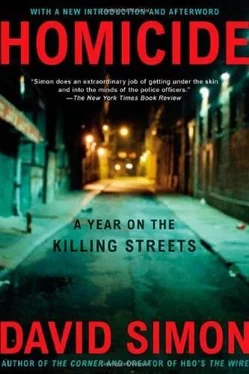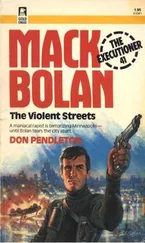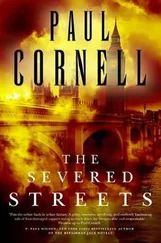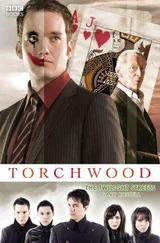The side of Gene’s face. The wound track. Butchie Frazier staring at his handiwork, wondering what the hell went wrong. That son of a bitch, thinks McLarney, frowning at the image.
The defense takes the rest of the afternoon, calling a couple of witnesses who insist that Butchie Frazier is the wrong man, that he wasn’t out there at Mosher and Appleton on that fall night. But Frazier himself does not take the stand; his criminal history makes such an act problematic.
“What happened to Officer Cassidy is a tragedy,” declares the defense attorney in his closing argument. “But it is a tragedy we can do nothing about. It would be adding to that tragedy to convict Clifton Frazier based on the evidence the state presented.”
For their own closing, Schenker and Gersh counter in tandem, with Schenker taking the high road and Gersh going low. The high road asks for an impartial examination of the evidence; the low road calls to a communal instinct that may or may not exist.
“Don’t convict Clifton Frazier because the victim in this case is a police officer,” Schenker tells the jurors. “Do so because the evidence demands it… Because Clifton Frazier did not want to go to jail, he shot Officer Cassidy.”
Yet ten minutes later, Gersh stands before the same jury, reminding them that “when a police officer is shot, a little bit of each of us is killed.”
The “thin blue line” speech, thinks McLarney, listening to the closing arguments from the back bench. Every time a cop is shot, the prosecutors wheel out the protect-and-serve imagery. Does the jury believe it? Does anyone believe it anymore? McLarney looks at the twelve faces. They’re listening, at least-all except number nine. She’s looking right through Gersh, McLarney thinks. She’s going to be trouble.
“We can send a message to the Butchie Fraziers of the world that they cannot go out on the street and shoot police officers…”
And then it’s over. Walking single file, the jurors move past the prosecutors, past the defense attorney, past Butchie Frazier, to climb the stairwell to the deliberation room.
Standing with Gersh and Schenker near the courtroom doors, McLarney suddenly encounters Frazier as the defendant, in handcuffs and leg irons, is under escort to the basement lockup. Frazier actually sneers as the two face each other at the edge of the hallway.
“Yeah. Right,” McLarney mutters, fighting hard for control. “Who the…”
Gersh pulls McLarney away. “I think we’ve got it,” the prosecutor tells him. “It’ll take a few hours, but I think we’ve got it. How’d you like our closing?”
McLarney ignores him, staring instead at the procession of Butchie Frazier and his two guards out the courtroom doors and down the second-floor stairs.
“C’mon,” says Gersh, with a light touch on McLarney’s shoulder. “Let’s go find Gene.”
Cassidy is already settled in for the wait, seated with his wife, his mother and his older brother in the back of the nearby jury assembly room. Western uniforms, fresh from their eight-to-four shift, hover around the family, issuing congratulations on the victory sure to come. Out in the hallway, Gersh and Schenker accept congratulations from spectators. As the evening sky fades outside the courtroom windows, two of the Western men organize a pizza run.
“Gene, what do you want on yours?”
“I don’t care, as long as it’s anchovy.”
“What’s the name of the place again?”
“Marco’s. On Exeter Street.”
“We better order now,” says one officer, smiling. “We’ll not be hanging around here long.”
For an hour or so, they are the picture of confidence. For an hour, they are laughing and joking and telling stories from the streets of the Western, stories that always manage to end with someone in handcuffs. Waiting for a verdict they are sure will come quickly, they busy themselves by recounting the best parts of the closing arguments and the details of Gene’s testimony.
But suddenly their optimism is shattered by the news that shouting can be heard near the door to Bothe’s courtroom, shouting that comes from the jury room upstairs. At times, the loudest voices carry out into the courthouse hallway, just outside the room where Gene Cassidy and his family sit amid empty pizza boxes and Styrofoam cups. The mood of the Western men darkens.
Two hours go by, then three. The shouting in the jury room continues, and the wait becomes agonizing.
“I don’t know what to say, Gene,” says Gersh, losing faith. “I gave it my best and I’m afraid it wasn’t enough.”
Four hours brings only a note from the jury forewoman, indicating that the panel is hopelessly deadlocked. Bothe reads the note to the attorneys, then brings the jury downstairs and gives a standard instruction, urging the jurors to return and attempt to reach a verdict.
More shouting.
“This is a crime, Gene,” says Corey Belt. “I can’t believe it.”
Raw doubt is sticking in their throats as the angry voice of one juror carries above the others and is heard at the bottom of the jury room stairs. They always lie, shouts the juror. You got to convince me.
They always lie. Who does? The police? The witnesses? The defendants? Butchie didn’t even testify, so it can’t be him. So who in hell is she talking about? McLarney hears about the remark from a clerk and immediately thinks of juror number nine, the woman who seemed to be looking through Gersh during the closings. It’s her voice, he tells himself. Goddammit, she’s the one.
McLarney swallows hard and retreats to the second-floor corridor, where he paces back and forth in a smoldering rage. There wasn’t enough, he tells himself. I’m losing this jury because I didn’t give them enough. An eyewitness. Corroboration. A jail-house confession. Somehow, it wasn’t enough. As late evening arrives, McLarney finds it harder and harder to go back into the room where Gene is waiting. As he walks back and forth in the marble hallway, several men from the Western come outside to assure him that it doesn’t matter either way.
“Guilty, he goes to prison,” declares one uniform, aman who once served under McLarney in Sector 2. “Not guilty, he goes back out on the street.”
“If he comes back to the Western, he’s dead,” says another, agreeing. “That piece of shit will wish he’d been found guilty.”
Reckless words, but McLarney nods in agreement. In truth, there would be no need for a plan, no elaborate conspiracy. It would simply happen. Butchie Frazier was a stone criminal, and a criminal is nothing if not predictable. Back on the streets of the Western, he would surely do his dark little deeds, and just as surely, every last uniform would be there waiting. No trial, no lawyers, no jury. If Butchie Frazier is set free today, McLarney tells himself, he’ll be dead within a year.
Back in the courtroom, Gersh and Schenker contemplate the alternatives. Fearing the worst, they could go to Frazier’s attorney and offer a plea before the jury returns. But what kind of plea? Frazier already balked at fifty. Thirty? Thirty means parole in as little as ten. Cassidy said from the outset he couldn’t live with ten. But can he live with an acquittal? In the end, the entire discussion is academic; sensing perhaps the same thing as the prosecutors, Butchie Frazier turns down any notion of a negotiated plea.
But the six-hour mark brings another, different note from the forewoman, this one inquiring about the difference between first- and second-degree attempted murder. Guilty. They’re talking guilty in there.
Hearing the latest, the cops in the jury assembly room are suddenly breathing again; a few sidle up to Cassidy and offer congratulations. He shrugs them off. Second-degree, he says, shaking his head. How can they be thinking about second-degree?
Читать дальше












